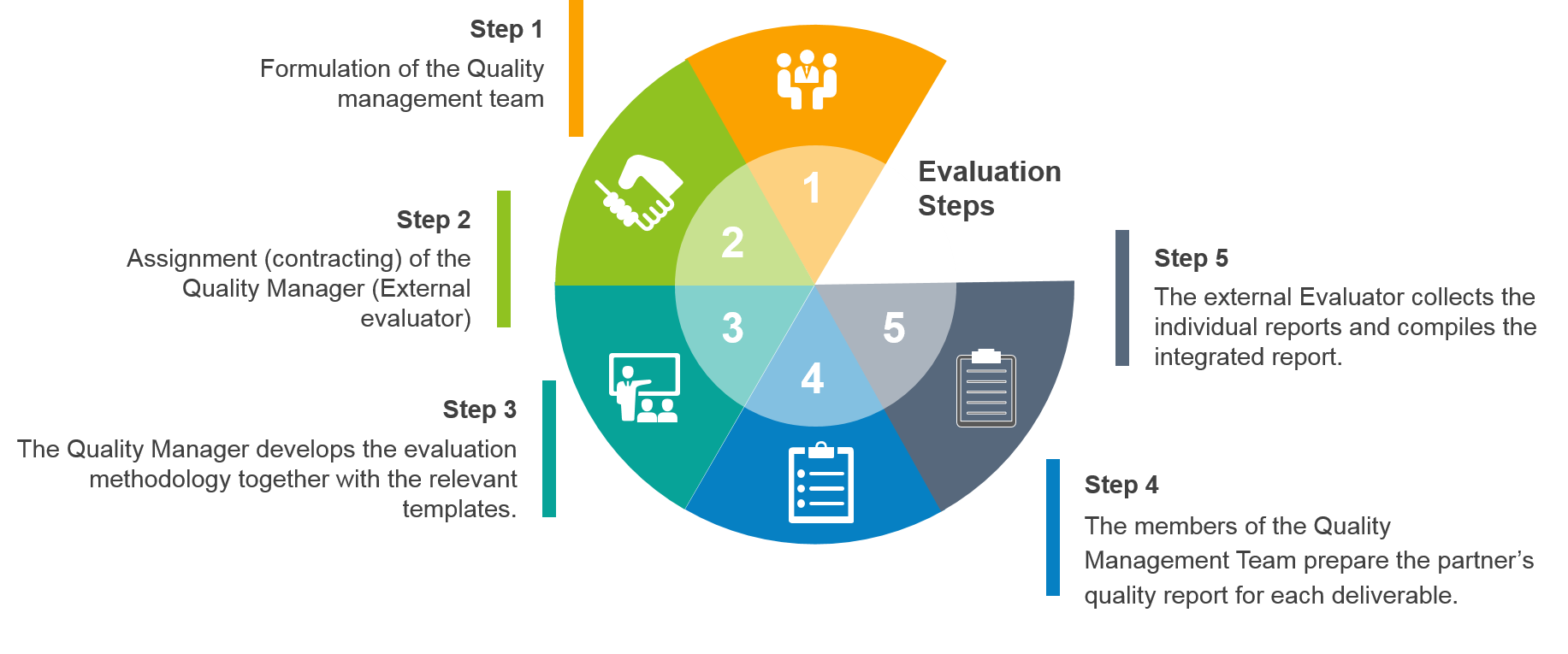Evaluation is an integral part of the monitoring and reporting that feeds into the decision-making process and supports organizational learning. The project team, the partners involved in the project and the wider stakeholders benefit from this continuous learning process. A weak evaluation exercise is a lost opportunity for all to learn and to use this knowledge to improve.
Although learning, in itself, may be regarded as valuable, its real importance lies in the translation of new knowledge into better practice. If learning is not expected to enhance the project’s performance or contribute to practical improvement in some other way, there would hardly be a justification for spending money and effort on evaluations.

Aim of the Evaluation
The evaluation is instrumental in the achievement of the following aims:
- Providing project partners and possible key stakeholders with the information needed to guide the project strategy towards achieving set goals and objectives
- Providing early warning of activities and processes that need corrective action
- Helping empower project partners by creating opportunities for them to reflect critically on the project’s direction and decide on improvements
- Building understanding, motivation and capacity amongst those involved in the project
- Assessing progress to enable reporting requirements to be met
- Assessing distribution of benefits among different beneficiaries
Main Steps of the Evaluation Process

A Quality Control Group (QCG) has been nominated by the Project Monitoring Committee (PMC) at the 1st project meeting. This group consists of one or two persons allocated from each project beneficiary. The QCG members are responsible for the internal assessment of the project outcomes (peer review of deliverables) and for performing an internal assessment of the project on an annual basis and according to a Interreg IPA Cross-border Cooperation Programme “Greece – Albania 2014-2020” multi-criteria approach, using a concise assessment methodology. The QCG is coordinated by the QCM Quality Control Manager.
PB2 who is the partner responsible for the activity D1.2.4 “Internal Evaluation & Quality Control” assigns the Quality Manager to undertake the task. The Quality Manager is responsible for ensuring that all project documents and particularly all project deliverables are controlled and revised effectively.
The Quality Manager develops the evaluation methodology together with the relevant templates (e.g. evaluation questionnaires, reporting sheets etc.). The methodology document explains the rationale behind the assessment study (evaluation), defines what the elements of the evaluation are (i.e. the deliverables), how these will be evaluated (i.e. the quality standards used as benchmarks and the process of reviewing the deliverables) and when the evaluation reports should be submitted.
The members of the Quality Management Team prepare the partner’s quality report (by filling out the reporting sheets) for each deliverable.
As soon as there is considerable progress done in the project implementation, the internal evaluator collects the individual reports and compiles two integrated evaluation reports one interim and one final.




